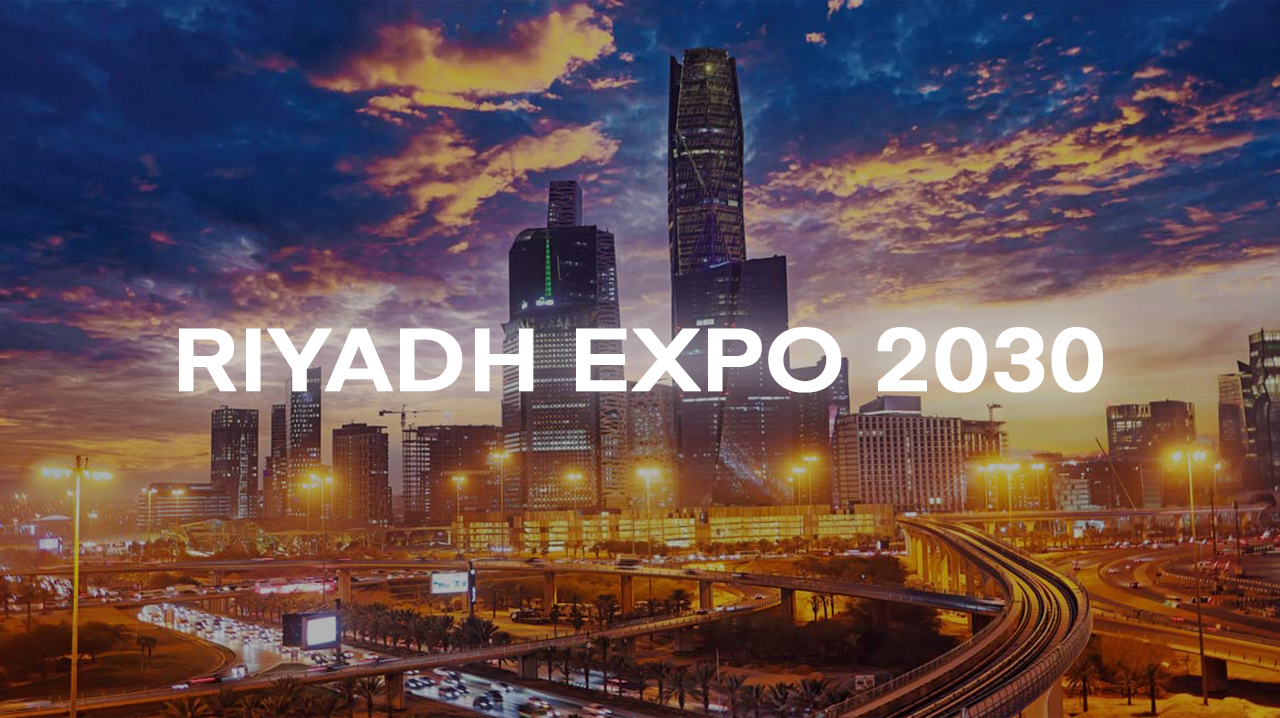In June 2025, the Kingdom of Saudi Arabia made a detailed royal decrees statement where it made one of the biggest transformations in the decades-old residency scheme in the kingdom. Such new reforms herald a significant step towards the modernization of the Kingdom and relates to the aspirations of the Vision 2030 to diversify the economy and develop a more attractive environment to compete with the global investors, skilled workers, and professionals. The order addresses several areas of the immigration policy, such as significant renovations to the iqama structure, a greater coverage to the permanent residency, and the introduction of visa conditions such that Saudi Arabia could become more accommodating and permissive to foreigners. Such Saudi residency reforms mark the transition of the traditional employer based system to more encompassing, talent based model of immigration.
A New Saudi Residency Policy
In Saudi Arabia, the residency system had been based on a sponsorship system that was termed as the kafala system. This model meant that expats had to have a Saudi sponsor such as an employer, who would sponsor them to live and work within the country. According to the royal decree of June 2025, a more dynamic, capable structure will be introduced due to the fact that the structure will be based more on professional skills, qualifications, and potential investment ability rather than sponsorship. It is not just administrative reforms but also cultural and economic reforms, which have a tremendous impact on many millions of foreign residents who live in the Kingdom.
The residency reforms in Saudi have since enabled greater mobility, long-term stability, and opportunities of accessing services to the expatriates. The goal has been changed to recruitment of high skilled professionals in the spheres of healthcare, technology, finance, education, and tourism in KSA. Meanwhile, there is an agenda by the Kingdom to retain and reward the experience expatriates who have years of service to the national development.
Skilled-based Tiers in Saudi Arabia: Iqama Changes
The transformation of the iqama system is one of the most influential facts in the royal decree of June 2025. The iqamas conventional lay with the employers and the foreign workers did not have the freedom to change jobs or leave the nation except with the permission of their sponsor as they had no freedom to apply to have a family visa. Today, Saudi residency is restructured within new laws, and the iqama system is developed according to the tiered model of skills.
This tier system will classify the expatriates through academic qualifications, job titles, experience and levels of salary. Extensively qualified personnel receive iqamas with a longer term being valid, higher permission of mobility and easier choice of the change of place of work. As an example, an AI engineer or a medical specialist can receive a five-year renewable iqama with few limitations applied, whereas workers of a lower tier can still be limited but this is being much less restrictive than previously.
The changes in the iqama that has been initiated by Saudi Arabia also incorporate facilitated digital renewals processes, easy access to government services and increment of family integration rights. The Kingdom has a new social attitude as workers are able to transfer their spouses and children with ease.
New Visa Rules Saudi Arabia
Together with iqama changes, Saudi Arabia has implemented several alterations to the visa framework. The list of the new visa rules that Saudi Arabia is about to introduce consists of long-term professional visas, investor visas, visas to work in a remote area, and some new possibilities concerning family visit. Among the most significant new entries, a five-year multiple-entry business visa has been added and this allows businesses owners and business consultants to go in and out of the country without going through additional processes that creating bureaucratic tendencies.
There is also the improved tourist visa program to facilitate the emerging hospitality and entertainment business in the country. There are new brands of digital nomads, remote work, and tech experts. Further, there exist project specific visas of the international experts in mega-projects such as NEOM, The Line, and the Red Sea Global.
These transformations are indicators of a wider vision of promoting international mobility, international collaboration and merging talents easily. The Kingdom is turning their immigration policy into a national growth and diversification tool by making it easy to enter the country, and by eliminating unnecessary visa-related steps.
The Door to Permanent Residency in KSA
The new decree issued in June 2025 renews attention to the Premium Residency Program, also known as the Green Card program of Saudi Arabia. Previously having been introduced way back in 2019, the program has now been modernized and simplified, with transparent and achievable opportunities in becoming a permanent resident in KSA. Critically skilled, knowledgeable persons, or financially invested persons can grant long term residency or lifetime residency in Saudi Arabia under the new regulation when such persons have experience at hand, academic qualification, or substantial investment in Saudi Arabia.
In the past, investors and rich people were the only people who could enjoy permanent residency. The new reforms, however, have changed this rule as professionals, including doctors, university professors, data scientists, and engineers may become qualified on the basis of contribution to Saudi economy and society. It is also less cumbersome as digital applications, reduced process time and transparent evaluation standards have also been made.
The permanent residency holders in KSA are now provided most of the rights enjoyed by Saudi nationals, such as owning of properties, sponsoring family members, receiving healthcare and running businesses. It is one of the most significant developments in Saudi immigration law, and it shows how the nation is willing to establish a more diverse and competitive world.
Economic Reason as a Push Factor to the Saudi Reforms Residency
These sweeping reforms can closely be connected to the economic goals achieved through Vision 2030. The Kingdom currently makes significant efforts to lower its dependence on oil income, and goes towards knowledge-based economy. Imperative to this transformation is the attractiveness and retention of high quality foreign talent. The government has realized the fact that a modernized system of immigration is also a very essential part of attaining this.
As the world struggles to secure its needs on such skilled personnel, Saudi Arabia has to contend with other countries that have introduced flexible and attractive avenues of residency. Through these new Saudi residency reforms, the Kingdom will be able to place itself as a destination to attract global talent via presenting stability, opportunity and room to grow. The reforms also should lead to increased consumption, the growth of the housing market, and real estate investment, thus benefiting several branches of economy.
Improvement of Social Stability and Integration of Expatriates
The reforms to the 2025 residency include the important theme of social integration. Foreign residents in Saudi Arabia were in the social vacuum and didn’t have much access to services and the life of the city for many years. The new policies are trying to change that by encouraging family unification, community involvement and exchange of culture.
The Kingdom promotes the long-term stay and lifetime settlement by providing a greater offer of options, such expatriates would view Saudi Arabia not only as a place of employment, but as a domicile also. Their chances to live and study their kids in the country and invest in the Saudi economy have increased. As other individuals rest ensured that, from a perspective of long-term future, they would not be disadvantaged, social stability goes up and that is the beginning of where productivity and civic participation are given an increment.
Its interest in a more inclusive society is shown through the support given to foreign language classes, cultural activities and societal outreach programs by the government. The adjustments are paving way to a more heterogeneous and integrated Saudi community.
Digital Transformation of Residency Process
The new reforms on the residency are being implemented with the help of digital technology. The Saudi government has developed a series of combined online channels, which can manage all aspects associated with applying to iqama, renewing visas, and reviewing the assessment of maintaining a permanent residency. Systems like Absher, Qiwa, and Muqeem are currently linked, giving the applicants and employers smooth customer-experiences.
Such a digital transformation saves on paperwork, streamlines, and makes the decisions more transparent. The applicants can now be able to know the progress they make; they can be updated in real time and this allows them to submit the necessary documentation easily. These websites are also multilingual, and have the capability of being used as mobile applications, opening them up to various users.
By adopting technology, Saudi Arabia is doing more than enhancing the integrity of its own services, it is also strengthening its profile as a progressive nation that is relatively progressive, highly digital with a big appetite to embrace change and the global community.
Regional Comparison and World Competitiveness
Saudi Arabia has become the pace setter of the immigration reform in the Gulf region. Although similar initiatives to establish new tracks of residency were already adopted in nearby states, such as the UAE and Qatar, the depth and scale of the royal decree issued by Saudi Arabia in June 2025 are notable. Through fixing structural problems within the iqama system, establishing more definite pathways leading to permanent residency and matching visa categories to economic needs, the Kingdom should be progressing to more meaningful rule changes.
These activities increase global competitiveness of Saudi Arabia. Since nation states in various parts of the world are competing to have the best professionals, the new policies in place in Saudi Arabia have strong arguments that would make professionals consider settling in the Kingdom as their permanent destination. The Kingdom boasts an excellent infrastructure, tax-free salary, and a mushrooming clean energy sector, digital finance, tourism, and logistic sector, which makes it a fan favorite amongst international individuals and talent.
Prospects of Investors and Business Leaders
The new residency framework is of great benefit to investors as well. The new regulation enables employers and other entrepreneurs to obtain a residence visa and permanent status in Saudi Arabia according to the contribution they make to the Saudi economy. The new system rewards those who go and start companies and generate employment and also innovate the market.
On top of these, permanent residents are now allowed to invest in real estates in most regions in the country including major cities such as Riyadh, Jeddah, Dammam and others. This has created more interest in Saudi property markets both to the local and international buyers which has catalyzed economic activity and has brought more supply of high quality housing facilities.
Due to the increasing level of visibility and transparency of regulatory environment as well as its investor-friendly nature, business leaders are increasingly seeing the possibility of planning long-term business operations in the Kingdom. The favorable environments are enabling Saudi to position itself into being regional and international trade hub.
The Implementation Difficulties and Future Concerns
Although this is a massive leap in terms of reforms, obstacles in the realization of the reforms still exist. Interdepartmental coordination of government, understandability of the eligibility criteria and training of the HR professionals are also necessary to prevent confusions and delays. The employers will be forced to modify their businesses in order to meet the new compliance measures as the expatriates will be required to acquaint themselves with their new responsibilities and rights.
Other workers with low incomes can continue experiencing difficulties, especially when facing the documentation requirements or minimal standards. It will be extremely important to ensure that every group will get access to the right kind of information and fair treatment in order to retain integrity and inclusiveness of the reforms.
In the future, Saudi Arabia would probably undergo further improvement of their residency policies in order to adapt to the changing world order. A system needs flexibility, feedback and innovation to stay fair, efficient, and competitive.
Major Inference
The June 2025 royal decree concerning residency is an epochal part in the history of Saudi Arabian immigration and labor Laws. Such Saudi residency reforms are not merely administrative changes; they are actually some kind of strategic shift in favor of openness, inclusivity, and global interaction. The government is remodeling iqama regulations, establishing new types of visas and offering convenient ways of becoming permanent residents in KSA, so that being an expatriate or an investor is more appealing.
These adjustments are in line with the vision of the whole industry of strengthening diversification of the economy, modernization of the culture, and global leadership. Be it smarter immigration laws, improved social integration, or the digitalization of the services provided, Saudi Arabia is preparing the ground towards making more dynamic and successful future. Since the nation is coming more open to the world, its residency system can be seen as one of the markers as well as a marker of its growing international position.
Stay informed with Know Saudi, your trusted source for insights into innovation, sustainability, and daily life across the Kingdom.




